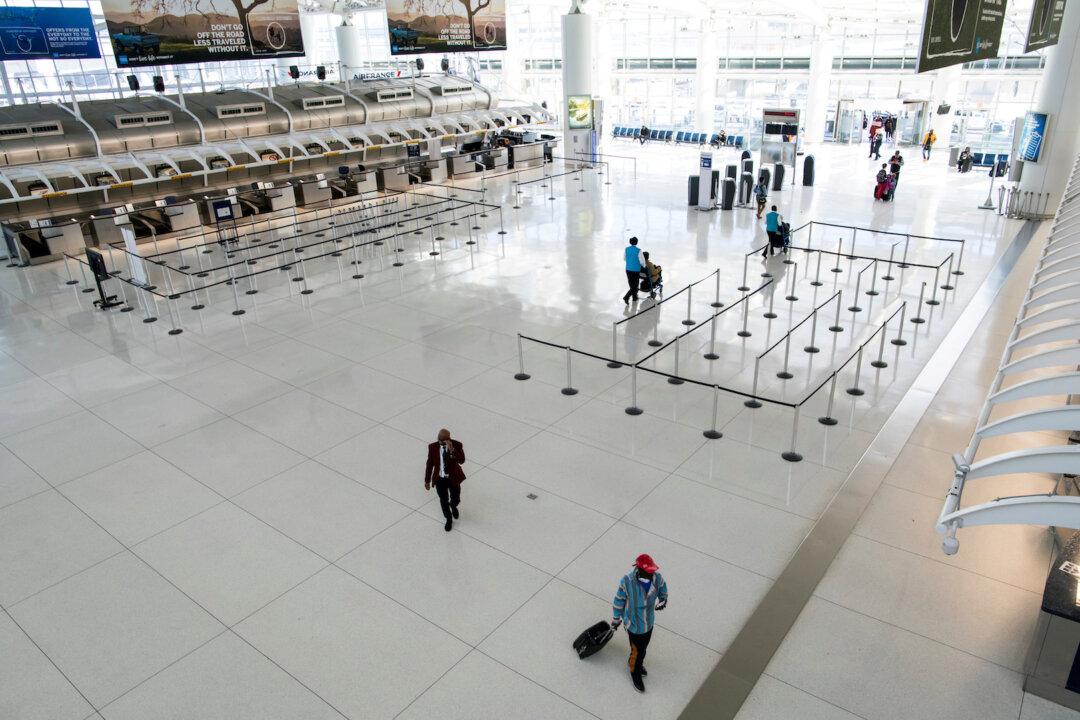WASHINGTON—The U.S. government confirmed on Thursday it will end enhanced screening of some international passengers for COVID-19 and drop requirements that travelers coming from the targeted countries arrive at 15 designated U.S. airports, starting Monday.
Reuters reported the planned shift Wednesday. The Centers for Disease Control and Prevention (CDC) said in a statement it was removing the requirements because symptom-based screening has limited effectiveness because people with COVID-19 may have no symptoms or only mild symptoms.





